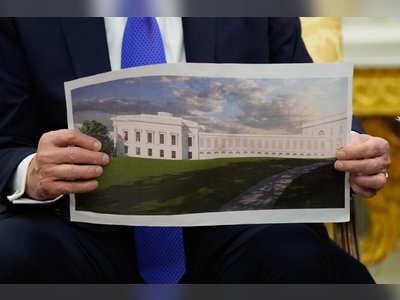0:00
0:00
Von der Leyen Indicates 'Remarkable' Step to Enhance EU Defense Expenditure
European Commission President Ursula von der Leyen suggests an emergency provision to enable higher defense expenditures in light of security apprehensions.
European Commission President Ursula von der Leyen has privately proposed activating an emergency clause in the EU’s fiscal regulations to enable countries to significantly elevate their defense expenditures, according to four EU officials.
The suggestion, made during a private meeting with national leaders on Monday, would permit governments to increase defense budgets without violating EU budget limits.
These regulations allow for spending plan deviations in exceptional situations, such as a major economic downturn or unforeseen events impacting a government.
Von der Leyen affirmed the goal of employing 'the full range of flexibilities' within the Stability and Growth Pact, which governs fiscal discipline in the EU, to facilitate considerable increases in defense spending.
She stressed that extraordinary times call for extraordinary actions.
While specifics were not thoroughly discussed, she also mentioned the possibility of excluding defense spending from national budget deficits.
This initiative arises amid rising demands from heavily indebted southern EU countries, such as Italy and Greece, which have advocated for a distinct treatment of defense expenditures.
Officials pointed out that invoking the emergency clause would enable nations to enhance their defense budgets without reopening discussions on a national spending agreement reached last year.
The EU's fiscal framework, designed to uphold collective fiscal discipline, has faced challenges due to events like the pandemic and the Ukraine conflict, which have led many EU countries to breach budget deficit limits.
Simultaneously, the U.S. has pressured EU members to boost their defense investments to meet NATO targets, increasing the urgency for European governments to revise their budgets.
The current EU regulations offer some leeway for countries committed to strengthening defense capabilities, allowing for gradual fiscal adjustments and provisions for defense spending to ease potential penalties.
Moreover, several EU nations, including Poland, are pushing for a broader interpretation of defense spending, contending that the current framework is overly restrictive.
The suggestion, made during a private meeting with national leaders on Monday, would permit governments to increase defense budgets without violating EU budget limits.
These regulations allow for spending plan deviations in exceptional situations, such as a major economic downturn or unforeseen events impacting a government.
Von der Leyen affirmed the goal of employing 'the full range of flexibilities' within the Stability and Growth Pact, which governs fiscal discipline in the EU, to facilitate considerable increases in defense spending.
She stressed that extraordinary times call for extraordinary actions.
While specifics were not thoroughly discussed, she also mentioned the possibility of excluding defense spending from national budget deficits.
This initiative arises amid rising demands from heavily indebted southern EU countries, such as Italy and Greece, which have advocated for a distinct treatment of defense expenditures.
Officials pointed out that invoking the emergency clause would enable nations to enhance their defense budgets without reopening discussions on a national spending agreement reached last year.
The EU's fiscal framework, designed to uphold collective fiscal discipline, has faced challenges due to events like the pandemic and the Ukraine conflict, which have led many EU countries to breach budget deficit limits.
Simultaneously, the U.S. has pressured EU members to boost their defense investments to meet NATO targets, increasing the urgency for European governments to revise their budgets.
The current EU regulations offer some leeway for countries committed to strengthening defense capabilities, allowing for gradual fiscal adjustments and provisions for defense spending to ease potential penalties.
Moreover, several EU nations, including Poland, are pushing for a broader interpretation of defense spending, contending that the current framework is overly restrictive.












